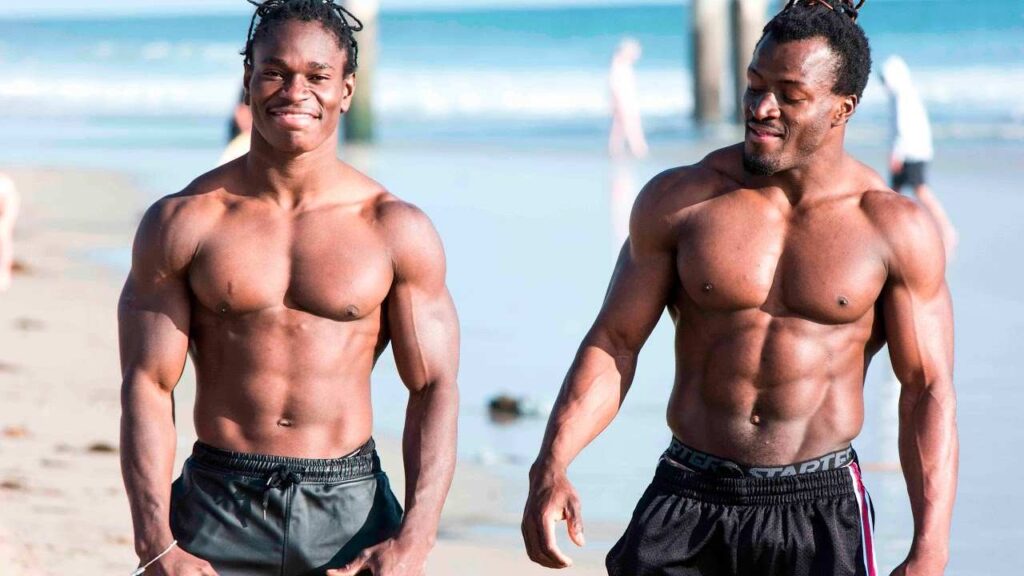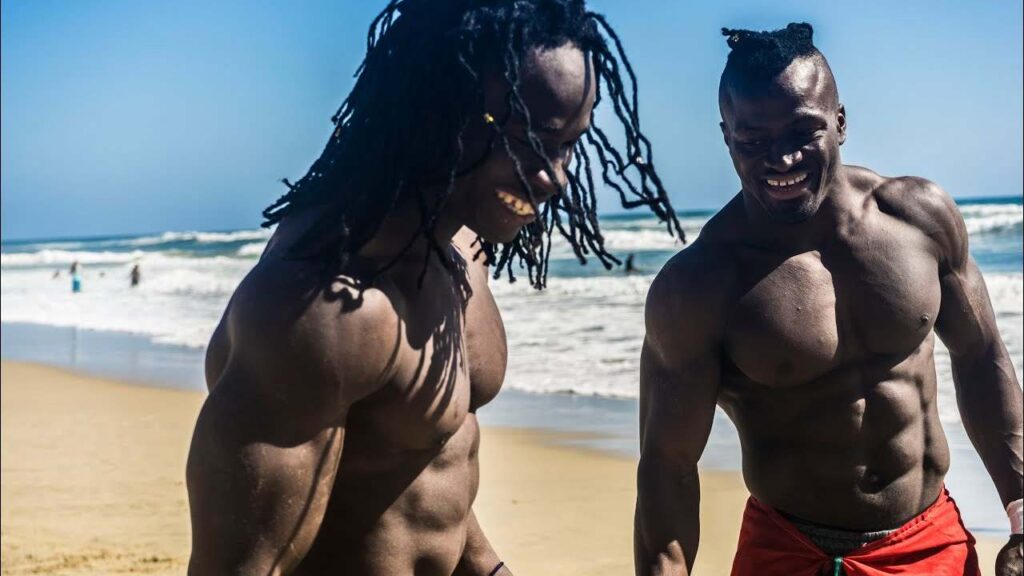
Do West African men really have “better” genetics for muscle? In some ways, yes — genetic traits like fast-twitch dominance provide a slight head start. But while it’s true that West African men tend to have more muscle mass and strength on average compared to their European counterparts, genetics alone doesn’t tell the whole story.
A nutrient-rich diet, active lifestyle, and cultural appreciation for strength all work together to create the muscular physiques often admired around the world. In this article, we’ll break down the key reasons behind the muscular physique of men of West African descent, including genetics, diet, exercise, lifestyle, and societal influences.
1. Genetics: The Foundation of Muscle Building
Genetics plays a big role in how your body looks and performs. West African populations often have muscle-building genetics that favor fast-twitch muscle fibers. These fibers are excellent for activities that require power and explosiveness, like sprinting or lifting weights. The ACTN3 gene is common in West Africans and helps boost muscle growth and strength.
This genetic advantage likely comes from evolutionary adaptations in regions affected by malaria, where anaerobic (low-oxygen) muscles provided better survival. These traits help increase lean muscle mass and lower body fat in young adults. However, genetics only account for a small part of the picture (around 18-23%), leaving plenty of room for diet, exercise, and lifestyle to make a difference.
On the other hand, people of European descent generally have more slow-twitch fibers, which are better for endurance. This means they may have less muscle bulk overall.
2. Diet: Eating for Muscle Growth
What you eat plays a major role in shaping your body. Traditional West African diets are packed with nutrient-dense foods that help support muscle growth and overall health. Common foods like leafy greens, beans, yams, and fish are rich in vitamins, protein, and anti-inflammatory compounds that promote muscle maintenance and recovery.
The African Heritage Diet focuses on balanced nutrition with moderate protein from fish and legumes, paired with starchy foods like fufu or millet. Unlike processed foods common in Western diets, these meals help keep inflammation low, which is key for muscle growth and recovery. By eating nutrient-rich, whole foods, West African men maintain lean muscle mass and energy without needing to rely on the heavy protein supplements common in Western fitness culture.

3. Lifestyle: Active Living That Builds Strength
In many parts of West Africa, the lifestyle naturally includes physical activity. Many men engage in daily tasks like farming, walking long distances, or carrying heavy loads. This constant movement builds functional strength that goes beyond the gym.
In contrast, Western life often involves a more sedentary routine, with cars and elevators reducing physical activity. Despite this, lower socioeconomic status in some African regions often encourages outdoor work, which can help keep obesity at bay. In addition, community activities, such as group sports and dances, offer more opportunities to stay fit, promoting a healthier, more active lifestyle compared to more sedentary Western habits.
4. Exercise: Traditional Sports and Modern Fitness
Exercise is a huge factor in building muscle. West Africa has a rich history of traditional sports like Senegalese wrestling (Laamb) and Dambe (a boxing-wrestling hybrid). These activities involve full-body exertion, boosting power and agility. Dance, a big part of the culture, also doubles as both cardio and strength training.
While many European fitness routines focus on gym-based workouts or endurance sports, traditional African activities offer a more holistic approach to fitness that builds strength, flexibility, and stamina. By combining modern fitness routines with cultural practices, West African men optimise their muscle-building potential.
5. Societal Perceptions: Culture and Masculinity
Society plays a big role in shaping how we see the ideal body. In many West African cultures, a muscular physique symbolizes health, power, and masculinity. Strong bodies are celebrated in art, sports, and social rituals, motivating men to pursue fitness as a way of asserting their strength and identity.
In Western societies, media often glorifies lean, muscular bodies, but in many African cultures, the emphasis is on functional strength rather than aesthetics. This may reduce body dissatisfaction and encourage men to focus on health and performance rather than just looks. Globalization is slowly blending these ideals, but African perceptions still tend to favor practical, functional strength over purely visual bodybuilding.
Wrapping Up: A Holistic View of West African Physiques
The muscular physiques of many West African men are the result of a combination of genetics, diet, active lifestyles, traditional sports, and cultural values that emphasize strength. However, it’s important to remember that these are population trends, and individual differences are huge.
You don’t need to be of West African descent to achieve a powerful, muscular build. With the right training, diet, and lifestyle, anyone can increase their muscle mass and improve their health. If you’re inspired, consider incorporating some West African-inspired meals or traditional dances into your routine to support your fitness goals.
For more insights into fitness genetics or cultural health, check out our related articles!


